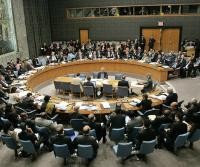This Thursday, the United Nations Security Council will hold a special session on preventive diplomacy -- the art of averting imminent wars, coups and massacres. The event will be attended by heads of state and foreign ministers, currently gathering in New York for the annual opening of the General Assembly. Their minds will almost certainly be elsewhere, as the Palestinian drive for recognition as a state is completely dominating U.N. diplomacy.
So the Security Council session is unlikely to generate anything more than well-aged truisms: Prevention is better than reaction; diplomacy is better than force, and so on.
Nevertheless, even if Thursday's debate turns out to be turgid, the subject matter is worth taking seriously. Over the past year, the major powers that sit in the Security Council have been caught off-guard by a series of conflicts that they theoretically had the leverage to prevent. These range from the outbreak of ethnic violence in Kyrgyzstan in mid-2010 to December's post-electoral violence in Côte d'Ivoire to government-directed atrocities in Libya and Syria, the latter still ongoing.

